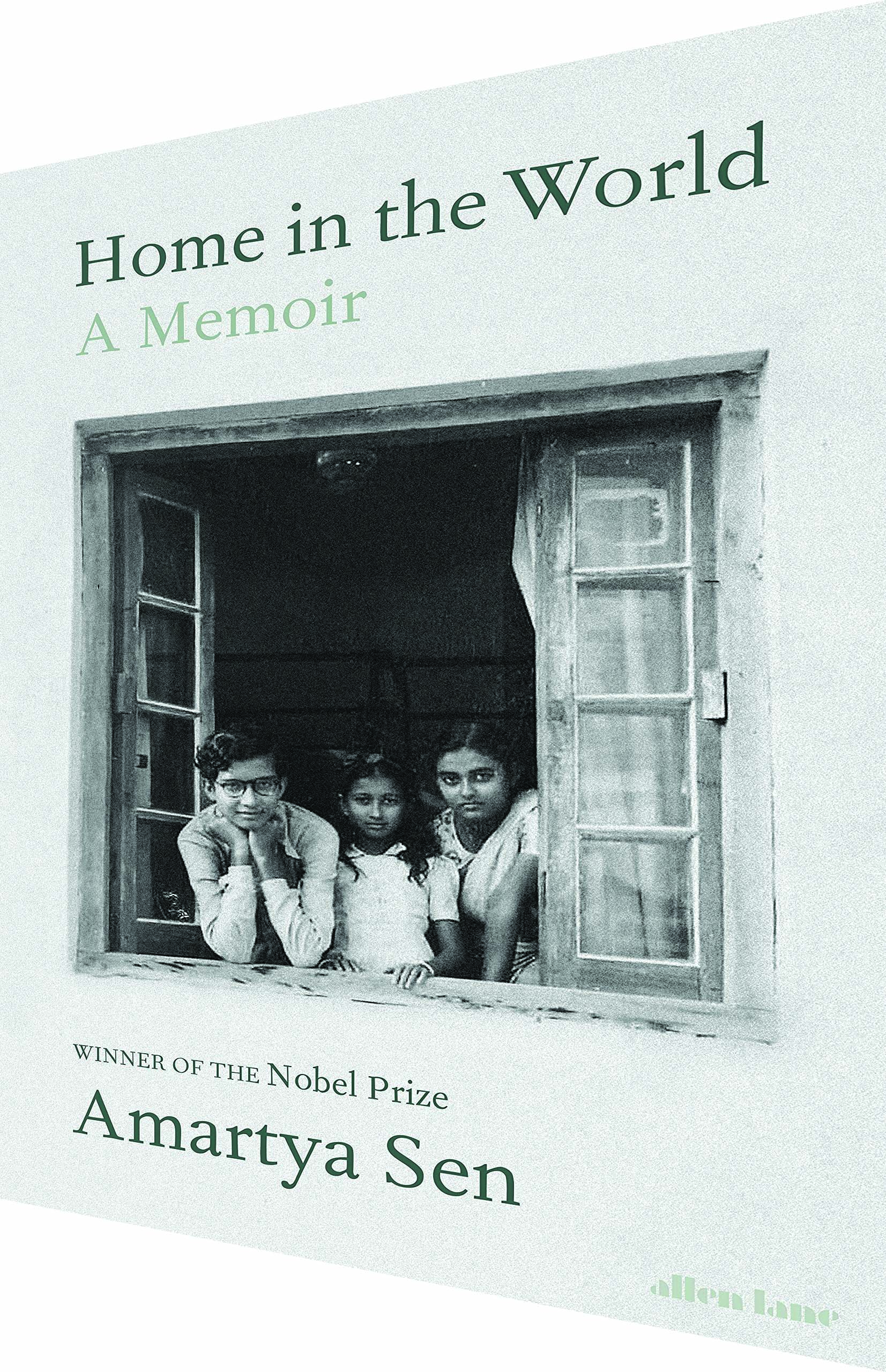Home in the World: A Memoir
-Amartya Sen
Allen Lane
Rs.899
Pages 464

Nobel economics laureate (1998), and quintessential argumentative Indian, Amartya Sen comes across as a true citizen of the world in his newly penned memoir. Traversing continents, he is as much at home in Harvard, Berkeley, Stanford, Trinity College Cambridge, as in New Delhi and Kolkata — places where he has held prestigious research and teaching positions. Sen’s memoir recollects his early childhood in colonial Bengal, memories of his ancestral home in Dhaka, his grandparents’ home and later ‘Pratichi’ in Santiniketan, and a temporary home in picturesque Mandalay, Burma.
Journeys to and from these varied locations were an initiation into a concept of belonging rather than displacement, an idea of ‘inclusiveness’ that remained with him through his later travels across continents, as he encountered diverse cultures and environments, people and places, reinforcing his perspective of a global civilisation.
A memoir is more than a mere autobiography as it captures and explores tangible and intangible experiences — strands of thinking, reflections, events, dilemmas. In this narrative, Sen draws on his early intellectual discoveries which became foundational for his later research in social choice theory and decisional analysis. The eclecticism and plurality of Sen’s training nurtured a weltanschauung that was humanitarian, compassionate, unprejudiced, gender sensitive and just. Recollecting the three decades over which Sen ruminates in this memoir, he looks before and after.
Part Two reinforces three extreme tensions of the early 1940s — the World War drawing closer to eastern India, the escalating politically engineered Hindu-Muslim divide in the subcontinent, and the horrors and human toll of the Bengal famine in 1943. The scenes he encountered as a sensitive boy, the prevailing milieu with its complex politics and pervasive poverty, shaped his consciousness.
This was the stimulus for his research on famines, questions of supply and demand, rural poverty and inflation, and welfare economics in general. Sen’s family was uprooted from Dhaka in the midst of escalating communal riots. The death of Kader Mia, who chanced to come to them for help after being stabbed, brought home the reality of economics, class and poverty that robbed people of their freedom. Victims of communal violence were mainly the poor and dispossessed. In Identity and Violence: The Illusion of Destiny (2006), Sen recounts how he probed the dangers of viewing people in terms of a single identity.
That train of thought was seeded decades earlier when he witnessed Kader Mia’s tragic death. This capability to absorb experiences and conversations and transform them into theoretical formulations is Sen’s unique gift. His observations on the history of multicultural integration in Bengal negates the later ‘clash of civilisations’ thesis formulated by Samuel Huntington.
The irony of growing up under British rule made Sen aware of the dichotomy between what Britain practiced back home and the iniquity of colonial administration in India. Even as multi-party democracy and freedom of the press prevailed in the home country, British India suffered authoritarianism, press censorship, surveillance, punishment of any form of native activism and deliberate official encouragement of economic stagnation.
Relocation to Calcutta for his undergraduate studies in Presidency College reinforced the value of lessons Sen learnt outside textbooks which constitutes a major proportion of his recollections. The second city of the empire continued to intrigue and attract him as paradoxically it was the epicentre of the Bengal renaissance. The intellectual vitality and cultural ferment where modernity and ethnicity were radically, even dialectically poised, gave the city its dynamic character. The vibrant socio-cultural milieu of post-independence Calcutta in the 1950s is portrayed authentically with its theatres, cinema halls and museums, its refugees and intellectuals. The grand city beckoned with its books and people, its streets, sights and sounds.
Sen nostalgically remembers his classmates and teachers, hours spent in coffee house addas — free-wheeling conversations, animated debates and intellectual progression that initiated him into the nuances of socialism, Soviet Communism, and Marxist ideology. At Presidency College, Sen delved deep into Marxian thought and interpretations, readings and misreadings, identifying sources of alternative economics and critiquing the application of Marxian dialectics to 20th century materialism.
The fourth part of the book is about Sen’s years in Trinity College, Cambridge where he was mentored by eminent economists and philosophers Piero Scraffa, Maurice Dobb, Dennis Robertson and Joan Robinson. With subtle humour, acute observations of a wide-eyed young novice, the friendships forged with scholars (many of whom went on to acquire eminence) across disciplines and cultural borders, shaped his liberal cosmopolitanism.
He clearly recognised the tensions rising between conservatives, socialist radicals and left-oriented Keynesian economists but persisted in pursuing his research interests in welfare economics and social choice theory. The prestigious Cambridge Prize Fellowship that he bagged was a lucky break that gave him freedom to study philosophy, epistemology and ethics.
Sen’s memoir covering three decades (1933-63) is an honest self-analysis and socio-cultural history of his Indian heritage. That it digresses into intellectual reflections, ideas and philosophies which are crucial to understanding and confronting the challenging economic and gender inequities in varied spheres of life, is its great virtue. Sen diagnoses problems and issues with refreshing honesty and erudition.
But these very virtues have made this dissenting and visionary Indian into a persona non grata in the reckoning of fundamentalist right-wing politics in contemporary India.
Jayati Gupta
Also read: Searing autobiography























